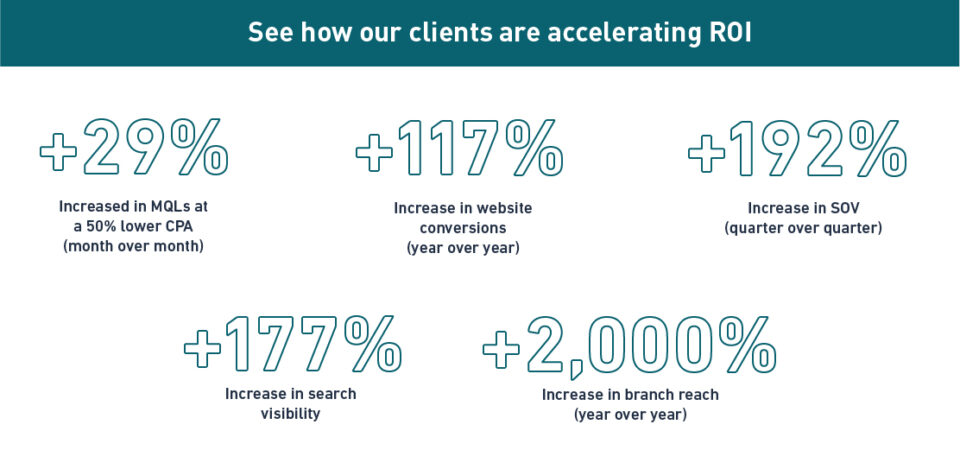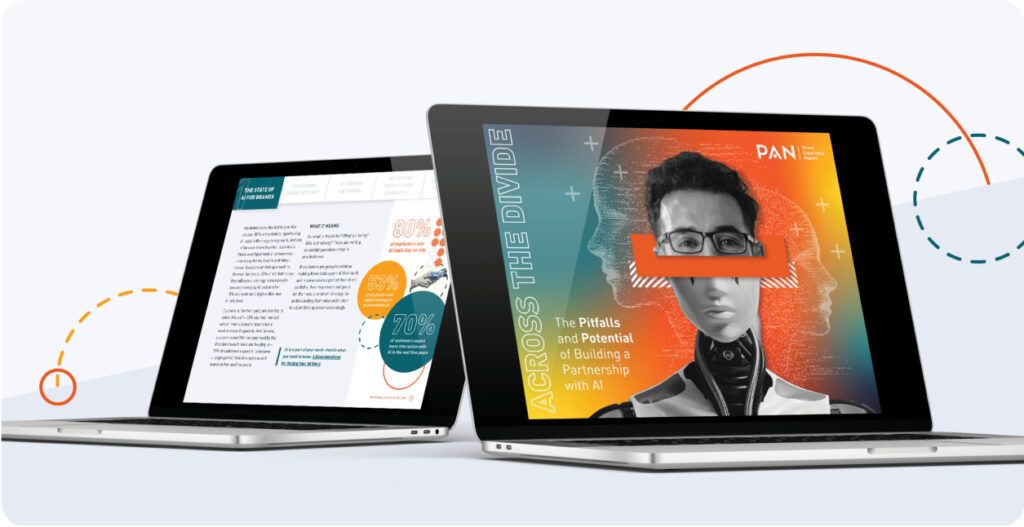What is an Integrated Marketing Agency?
Too often, B2B businesses limit their true potential by choosing to prioritize brand or demand. They’ll hire a public relations agency to elevate their brand story and CEO’s thought leadership platform, or they’ll bring in a digital marketing agency to build a paid media campaign to quickly capture leads. Both are equally essential and complementary components of a successful marketing strategy — but often are treated in isolation.
The brand-to-demand (B2D) framework is a full-funnel integrated approach that strikes the right balance between brand awareness and demand generation marketing efforts, leveraging paid, owned, and earned channels to ensure an organization’s narrative resonates and motivates their audience to action. Integrated marketing agencies are uniquely suited to making this happen.
So, what exactly is an integrated marketing agency, and how does it help with brand to demand?
PAN VP Ashley Wallace Jones speaks with CivicPlus CMO Emily Harnish about the integrated experience
An integrated marketing agency is a one-stop shop for comprehensive B2B marketing services, with the well-rounded skills and expertise necessary to execute cross-channel campaigns throughout the entire customer journey. It takes a thoughtful, customer-first approach to ensure the right message is communicated to the right prospect at the right time. It’s the driving force of brand-to-demand.

5 Reasons to Switch to an Integrated Agency for B2B Marketing Services
B2D is a powerful approach to ensuring B2B marketing success, and it becomes even more impactful when all activities are married under one agency umbrella. Below we offer a deep dive into the five key benefits of partnering with an integrated agency, and why you should make the switch now.
1. Reduce Overall Marketing Costs
It may not seem like it at first, but the cost of bringing all marketing activities under one roof can be incredibly advantageous. By reducing the number of vendor partners to one, organizations can save precious time and resources by processing fewer management and administrative fees. It’s also beneficial from a resource allocation perspective. Rather than paying for the time and effort of multiple people across different firms — particularly high-cost team leads and executives — you’re paying for one cohesive, smaller team that has overlapping skills and expertise.
Additionally, a one-stop agency is beneficial in reducing expenses and increasing efficiencies associated with explaining the same company sales goals and objectives to multiple partners; one vendor already has the historical knowledge and relationship needed to quickly understand and pursue strategic initiatives that will work well for the brand.
No doubt, integrated marketing agencies offer the most streamlined, efficient, and transparent blueprint for executing comprehensive marketing strategies within a quicker timeframe.
2. Eliminate Silos
A major benefit of an integrated agency is the breadth and depth of services it offers, all under one roof. Yet many organizations are still tapping specialized firms — digital marketing, graphic design, public relations, content marketing — to achieve different degrees of their marketing. The services offered by these vendors are critical to building brands, but they often aren’t in alignment with one another, thus encouraging siloes to form.
And when siloes form, communication is bound to break down. When multiple partners are working on one campaign, there’s typically a designated person within the B2B organization serving as the middleman who relays information from vendor to vendor. Not only does this drastically slow down the typically time-sensitive campaign process, but certain campaign components are likely to get lost in translation just based on the nature of working separately.
By bringing it under one roof, it encourages cohesion, greater overall transparency, and better results.
3. Run Streamlined Campaigns
Another benefit of integrated agencies is that they can run full cross-channel marketing campaigns that work together to achieve one single goal. When multiple agencies are in the mix, communication issues around goals, ownership, review processes, and more are likely to arise. That’s because different agencies have varying processes and workflows. This can even lead to disagreements about the way certain things are handled, causing an unnecessary deviation from the overarching campaign goals and timeline.
Additionally, integrated agencies help to streamline reporting. When data, metrics, and goals are all tracked in a centralized location, organizations can rest assured that their data won’t be diluted and will be leveraged to inform sound marketing decisions going forward. Plus, the readily available data means integrated agencies can make optimization recommendations that diffuse to all facets of a campaign much more quickly than when dispersed and fragmented.
4. Achieve Clear and Consistent Branding Across Channels
There’s nothing more important to a brand than its story. You can’t drive demand or grow leads for your products and services without first establishing a solid foundation of brand recognition and trust. An integrated marketing agency partner is integral to not only laying this branding foundation but ensuring it’s consistent across channels. This is especially critical in a world where customers will lose trust in a brand if the experience from one channel to the next isn’t cohesive.
It’s better for business, too. In fact, more than two-thirds of businesses say brand consistency has contributed to revenue growth of at least 10%.

With an integrated agency, you have a partner who is ingrained in every nook of your brand’s story. They understand how to build a strong, compelling brand narrative and also how to leverage tactics that will make sure that story resonates with its audience from channel to channel.
5. Ensure Full-Funnel Coverage of the Buyer’s Journey
It’s not enough to pour all money and resources into one phase of the buyer’s journey — every stage, from awareness to conversion, serves a critical function that must be carefully finetuned to meet the customer at that point on their journey. Say you have a content partner that crafted a beautiful and compelling piece of in-depth, valuable premium content, such as an industry report. If they don’t know how, when, or where to use that content to drive awareness, nurture the customer, and ultimately garner leads, it’s effectively a wasted resource.
An integrated marketing agency, on the other hand, understands each and every touchpoint that comprises the customer’s journey. It knows how to serve these customers at their various decision-making stages, compared to specialized vendors who only know how to serve one stage really well.
The One-Stop Agency for Comprehensive Brand-to-Demand Solutions
PAN’s integrated marketing services — encompassing the gamut of paid, owned, and earned solutions—drive both brand awareness and demand generation marketing efforts for B2B organizations. We deliver one strategic recommendation and pull one message through channels in alignment with company business goals. Our unique approach delivers clear client benefits, including data-driven ideation, efficiency, speed, and continuous optimization.

Future-Proof Your B2B Marketing
The transition from a fragmented marketing approach to an integrated one isn’t just a shift in operations, but a strategic move towards a future-proof marketing infrastructure.
By choosing an integrated marketing agency like PAN, B2B companies can align marketing efforts with their brand’s narrative and goals, paving the way for sustainable growth and long-term success. In today’s fast-paced digital era, cohesive, consistent, and comprehensive marketing isn’t just a luxury, but a necessity.
Harness the power of integrated marketing and make your brand-to-demand journey more efficient and effective.



